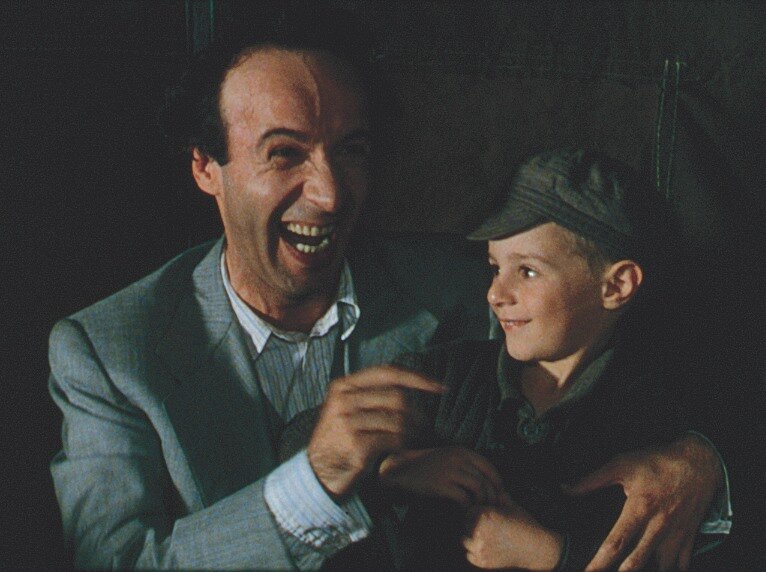Buongiorno Principessa,
I think this picture was most successful when it was a light-hearted study of an eccentric Italian waiter establishing himself in a new town. The comedic beats were wonderfully written and performed. Where the film missed for me was once it entered the camps. I wasn’t sure who this film was made for, what perspective it desired to portray. Was it for kids? More likely it was for adults with children. What wouldn’t you do to protect the innocence of your child? How far might you go to shield them?
Like Europa Europa, I felt a minor disconnect from the darker realities of life as a Jew during the Holocaust. It never felt insensitive, and the film is full of passionate craft, but I was a touch disappointed with the last third. Similar to JoJo Rabbit, I feel the filmmakers decided the story had to be more universal in its message and imagery, to not turn away the weak-stomached and engage a wider audience in an important dialogue. But I couldn’t help but see the opportunity to craft an ending with richer substance, unafraid to dip its toes into a darker, truer presentation of reality.
I could watch JoJo Rabbit twice in a week and enjoy it throughout, peppered with moments of tragedy, comedy, and truth—altogether very palatable. Grave of the Fireflies, however? I watched it once, and I will never need or want to see it again. Its message will always be seared into my mind. Both approaches to storytelling are vitally important.
There is a magic to this picture, like JoJo Rabbit, that will comfortably captivate and educate audiences for years to come. I think this is a standout film among the genre, a reflection of many important truths, but perhaps not many darker ones. It’s a beautiful story, told well, with a unique perspective on tough material.
I suspect that rewatching this film many years from now, with children of my own, I’ll be able to tap into the intended effect of this film.
Life is beautiful.
